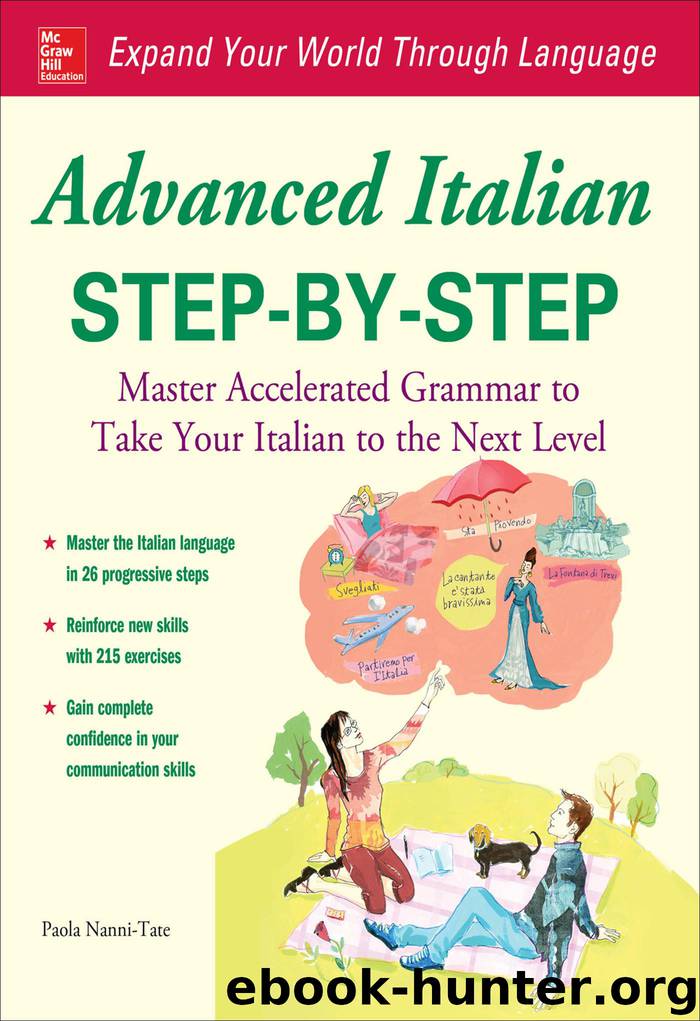Advanced Italian Step-by-Step

Author:Paola Nanni-Tate
Language: eng
Format: mobi
Publisher: McGraw-Hill Education
Published: 2016-03-03T00:00:00+00:00
Domande e Risposte
After carefully reading the story, answer the questions in full sentences in Italian.
1. Che cosa c’era al club ogni domenica?
2. Che cosa facevano i giovani al club?
3. Perchè hanno smesso di andarci?
4. Di che cosa parlano le amiche quando si incontrano dopo tanti anni?
5. Ti piace ballare? Tu vai a ballare?
14
Direct Object Pronouns
Transitive Verbs and the Direct Object Pronouns
A direct object receives the action of the verb directly, and it can be a person or a thing. Verbs that take the direct object are called transitive verbs. The object pronouns are used to avoid repetition, but one has to know what the object is before using them, or it is impossible to know what one is saying:
I write the book.
I see the girl.
Direct object pronouns in Italian precede the verb except for the present participle, the infinitive, and some imperative forms when the direct object is attached to the verb. Object pronouns in Italian are never stressed.
Here are the Italian direct object pronouns:
Download
This site does not store any files on its server. We only index and link to content provided by other sites. Please contact the content providers to delete copyright contents if any and email us, we'll remove relevant links or contents immediately.
Housekeeping by Marilynne Robinson(4441)
Papillon (English) by Henri Charrière(4265)
The Poetry of Pablo Neruda by Pablo Neruda(4100)
World without end by Ken Follett(3476)
TCP IP by Todd Lammle(3182)
Fluent Forever: How to Learn Any Language Fast and Never Forget It by Gabriel Wyner(3082)
The Rape Of Nanking by Iris Chang(2819)
How Proust Can Change Your Life by Alain De Botton(2811)
The Alchemist by Paulo Coelho(2690)
The Partner by John Grisham(2396)
Two lives by Helen Naylor(2297)
Hitler by Ian Kershaw(2195)
Yerma by Federico García Lorca(2064)
Sophie's World by Jostein Gaarder(2018)
Smilla's Sense of Snow by Peter Hoeg(1940)
Merriam-Webster's Pocket Dictionary by Merriam-Webster(1933)
Twilight of Idols and Anti-Christ by Friedrich Nietzsche(1893)
Il cavaliere inesistente by Italo Calvino(1856)
Deep Writing by Eric Maisel(1820)
